INESC TEC at the forefront of the energy revolution
Event organised by INESC TEC confirms Portugal’s pioneering role
INESC TEC was chosen by the Lawrence Berkeley National Laboratory of the US Department of Energy to bring to Portugal for the first time the Symposium on microgrids, which took place on 3 and 4 September. Évora was the city chosen to host this international event which welcomed 125 experts from all over the world. This acknowledgement confirms that Portugal and INESC TEC are at the forefront of what is done best in the energy field.
BIP interviewed João Peças Lopes, a director at INESC Porto (the coordinating entity of INESC TEC) and president of the event’s local Organising Committee, and Carlos Moreira, a researcher at INESC TEC’s Power Systems Unit (USE), who both talked about the importance of this 8th edition of the Symposium on Microgrids.
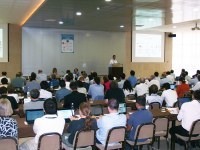
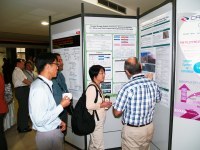
Energy discussed by experts from all over the world
125 experts from all over the world – of which 100 were foreign – attended the 8th edition of the Symposium on Microgrids, which is part of a series of events promoted by the University of Berkeley, in the United States of America (USA). This year, INESC TEC was responsible for organising this event (with the support of the EDP Distribuição and EFACEC), following an application submitted in 2011 to bring this Symposium to the Portuguese city of Évora. “After the application was accepted and the event organised, INESC TEC’s role in the Smart Grids domain was confirmed”, as stated by Carlos Moreira.
This event, which welcomed participants from four continents – Europe, Asia, America (north and south) and Africa, – provided a place for sharing experiences in both academic and business domains. According to Carlos Moreira – a researcher who participated actively in the Symposium with a presentation entitled «Operational Characteristics of Microgrids with EVs» –, this Symposium “has been contributing to improving and maturing the state of the art and to launching new ideas” which are essential to themes such as microgeneration, microgrids and electric mobility.
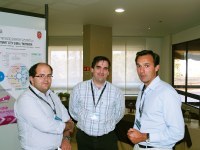
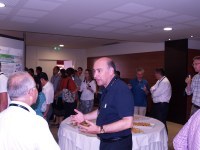
João Peças Lopes states that he was “particularly satisfied with the contents presented. More than anything else, the event made it possible to show what is being done internationally in this domain”. Furthermore, “this was also the place to present case studies and pilots which are being developed in other countries in the world and that was particularly relevant to share ideas and experiences”, the director highlights. When questioned on why the city of Évora was chosen, João Peças Lopes stated that this city has “all the ingredients to host this type of event, not only because this is a World Heritage Site, but also because the city is hosting a pilot with a set of smart meters installed and an infrastructure capable of accommodating microgeration equipment and the concept of microgrids”.
At the forefront of smart grids and microgeneration
The highlight of the two-day event was the visit to the InovCity demonstrator in Évora, where the visitors had the opportunity to contact with some of the project’s infrastructures. The president of the local Organising Committee considers that the participants were “truly impressed because they didn’t think that everything was working the way we said it was”. And he also highlights that: “it is one thing to do presentations in conferences, but getting there and seeing that everything actually works is extremely important”.
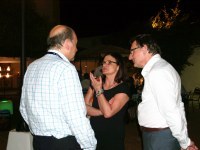
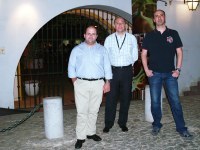
The InovCity is a pilot project led by the EDP Distribuição which already has 33 thousand clients. This work with a strong INESC TEC participation confirms Portugal’s pioneering role in the energy revolution that is currently taking place worldwide. João Peças Lopes stresses that with this event Portugal “had the opportunity to present Évora’s case study, which was particularly welcomed because this is a very large project comparatively to what is being done in other countries”, which is also proof of the project’s innovativeness.
For the director, this work “now has a significant technical maturity and that demonstrated the capacities of the Portuguese scientific and technological system, as well as Portuguese engineering and companies in this sector”, he adds. More than that, [the InovCity] “was even a surprise to many participants who did not expect that this type of skills and competences to exist in Portugal. In that aspect, it was extremely positive”, he reveals.
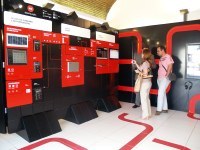
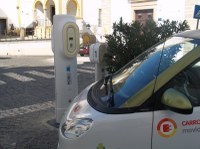
Évora – an example of a sustainable city
Évora is the first Portuguese city to host a smart grid. Smart meters have been installed as part of InovCity, which made it possible to improve communication between the energy supplier and the consumer. And what is now different in Évora? João Peças Lopes and Carlos Moreira both highlight the consumers’ awareness on energy and its costs. These consumers “now have a totally different perspective of what electric power is and how it is used”, the director adds. More than that, there is “an awareness of the costs, of how difficult it is to produce energy, which is translated into fluctuations in electricity prices”, he adds.
This new perception is fundamental to achieve gains in efficiency and to use energy more rationally. And those gains are now visible. “Today there is a number of consumers in Évora who were capable of reducing their energy bills by two or three per cent and, in some specific cases, those numbers can go up to seven of eight per cent”, the director reveals. But the intention is “to go even further; the project must accommodate microgeration more seriously and boldly. That is what it was designed for and that’s what is happening right now”, João Peças Lopes stresses.
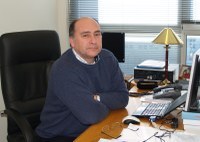
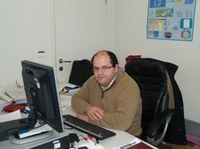
Carlos Moreira adds that as a result of the project there have also been some changes “in terms of infrastructures to charge electric vehicles in public spaces, and in terms of innovations to manage and control public lighting”. All this, combined with the creation of conditions to improve energy efficiency by using smart meters in public spaces – a technology that was made possible by INESC TEC’s expertise – is a truly differentiating aspect of this Portuguese city.
What about the future?
Portugal has already started paving the way for excellence in the energy area with the progressive integration of renewable sources to generate electricity and to promote a distributed generation in the grid, which required the grid to be managed more actively. This event thus acknowledged the country’s role, and INESC TEC’s in particular, in the energy revolution that is now taking place in this area; more than that, it acknowledges the country’s capacity to adapt to new technological paradigms in exploring renewable microgeneration.

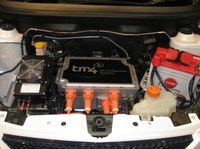
According to Carlos Moreira, Portugal has been demonstrating its technological capacities in the Smart Grids domain and InovCity “laid the foundations so that in the future the main players (those who distribute and sell electric power, equipment manufacturers, entities within the Scientific and Technological System) keep looking for innovative solutions that will help develop and implement the concept of Smart Grids”. This is a line of work in which INESC TEC has been investing, and will continue to do so “with conditions that are now strengthened”, the researcher at USE highlights.
João Peças Lopes confirms that Portugal has always managed to react proactively, not only the scientific community, but also the companies in the sector, and the utilities in particular, in this case the EDP Distribuição. “This has allowed us at a certain moment to be at the forefront, something that is acknowledged worldwide, and the idea is to keep going”, the director states. And he adds, “We must keep making an effort in this domain because if we want to guarantee that the Portuguese industry is capable of innovating, of being characterised by technological differentiation, of having the capacity to exporting and making a stand in foreign markets, we must carry on with our work”. Naturally, INESC TEC plays a fundamental role here “because of its experience and know-how and that cannot be disregarded”, he reveals. On the contrary, “we must keep growing and transferring what we do best to industry, particularly the Portuguese industry”, he concludes.
Have your say

André Madureira (researcher at USE)
"The Symposium on Microgrids, which took place in Évora and was organised by INESC Porto and the EDP Distribuição, was an extremely positive experience as it allowed world experts to meet and we had the opportunity to show the high value work developed here in Portugal in this area over the last years. Even more so, this was yet another opportunity for INESC TEC to confirm its position as a relevant institution in the microgrids and smart grids areas, mainly in the fundamental role it played in developing the InovGrid project with the EDP Distribuição."

Luís Seca (researcher at USE)
“This event was an opportunity for some of the greatest microgrids experts in the world to meet in a welcoming and informal environment and to discuss the state of the art and future research topics. The event organisers were highly praised by participants, who were particularly impressed by InovCity, a real scale pilot project with about 30 thousand electric meters and other advanced devices – functional architecture and specification defined by INESC TEC – used to control the grid”.


